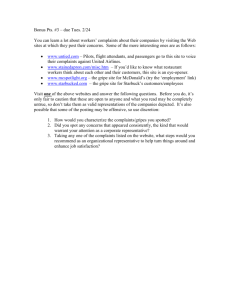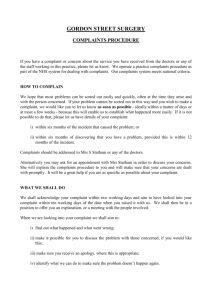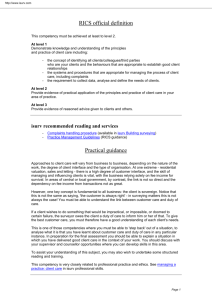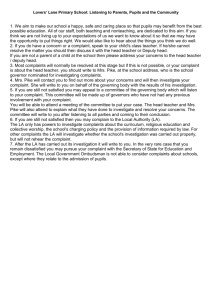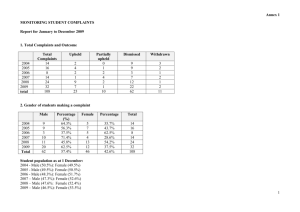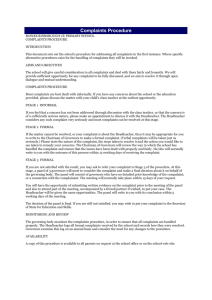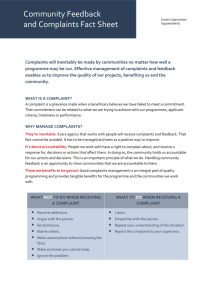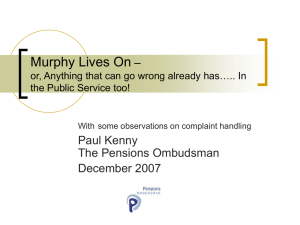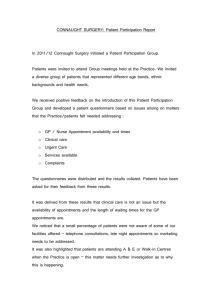Unit 054-Duty of Care power point
advertisement
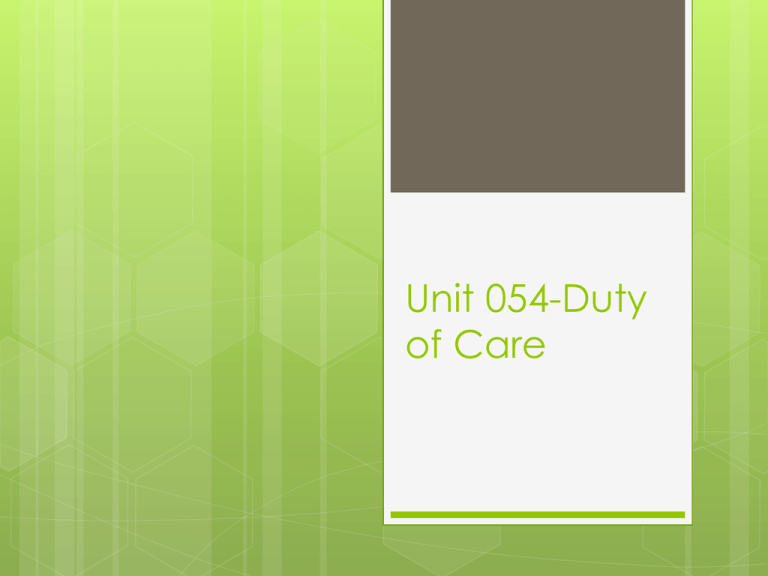
Unit 054-Duty of Care Definition of Duty of Care What does Duty of Care mean to you? *discuss in groups and come up with a definition (1.1) Definition “Is a regulation to ensure that children and young people do not experience unacceptable risk that will cause them harm” This duty is more important when we are working with younger children and those with special needs. Duty of care is owed not only to children , but also to their parents and families, who expect carers to use their expertise to care for their children. All those working in childcare must comply with written obligations set out in agreement they have with the scheme or service, contracts with parents or with relevant legislation. Failure to comply with any of these makes it easy to prove that there has been a breach of duty of care Conflict/Dilemmas 5 key areas where conflict/dilemmas may arise: 1. Opportunities for children and young people to manage risks 2. Discrimination and equal opportunity 3. Dealing with challenging behaviour 4. Recognising and reporting signs of abuse 5. Observation/assessment of children *Discuss why each of these points will cause some conflict or dilemma (evidence for 2.1) Where to get help and advice from Line manager Workplace safeguarding officer SENCO Ofsted Local authority development worker Social services Websites Early years’ forums The Statutory Framework for the Early Years Foundation stage requires childcare settings to have procedures in place for dealing with complaints from service users and for summary records of these complaints to be made available to Ofsted during an inspection and upon request to all service users. Not all complaints will fall within the remit of Ofsted to investigate but the setting should investigate and respond to them all in the same way. It is good practice to respond openly to complaints as no one ever gets it right all the time. Good Practice when dealing with Complaints •Clarity – ensure that you Complaints Procedure is clear and understandable by all Staff and Users. •Respect – listen and take every complaint seriously who ever has made it. •Recording – log concerns, investigations and outcomes, of formal complaints. •Support – provide support to enable staff and users to make complaints, assist them in communicating either verbally or written. •Time – respond appropriately, a minor complaint can be sorted out there and then, more serious cases the complainant must be told what will happen and when. •Fairness – ensure that the investigation process is fair •Reflecting – learn from the complaint and make necessary changes. Role play scenarios Learner 1- The person making the complaint Learner 2-The member of staff receiving the complaint For those watching consider the following questions How did the member of staff handle the situation? Did he/she follow correct procedures demonstrating good practice? Comment on communication and body language. Any ways the member of staff might improve practice?

